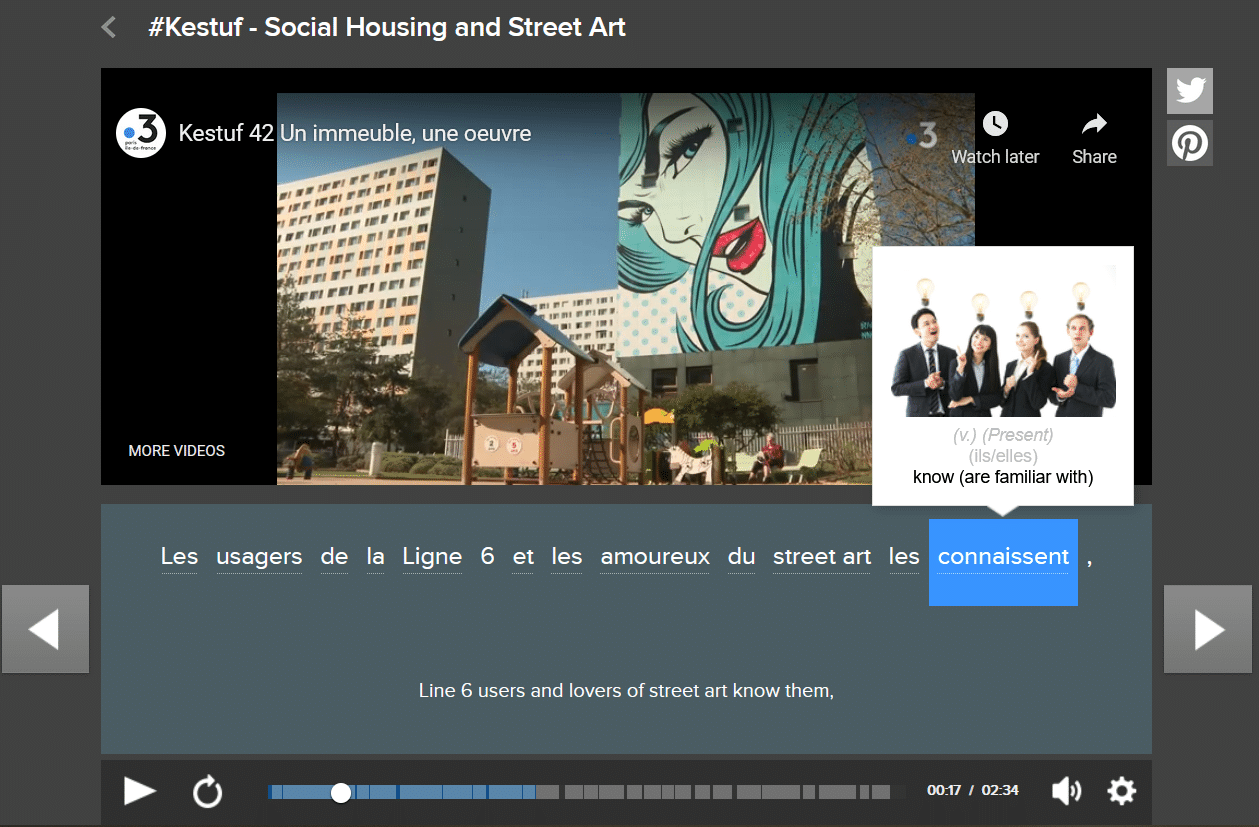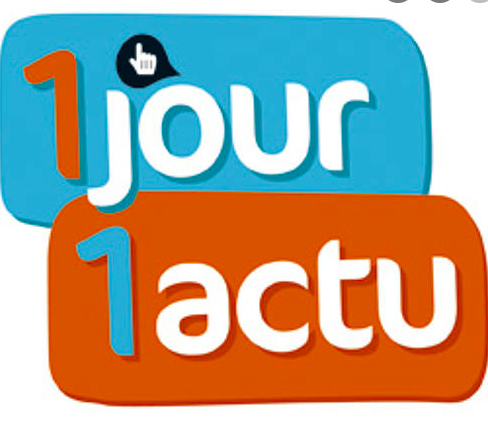
French News for Beginners: 9 Awesome Resources for Your Daily Serving of French
Do you suffer from FOMO like I do?
If you’re learning French, you can make the French news work for you so you never have to miss out.
Not only will you stay informed, but your French will improve as well.
In this post, we’ll look at the latest guided resources beginners can use to learn French with news, along with study tips and next steps for easing into French news platforms.
Contents
- French News Resources for Beginner Learners
- How to Study French with News
- Why Read French News as a Beginner
Download: This blog post is available as a convenient and portable PDF that you can take anywhere. Click here to get a copy. (Download)
French News Resources for Beginner Learners
As a beginner French learner, your main goals should be improving your listening comprehension and building your vocabulary. This is where the news comes in handy. But at this stage, you might find it difficult to digest the news in its pure, authentic form.
That’s why we’re going to look at lots of sites that make it easier with guided lessons and practice for French news:
TV5MONDE
A Francophone global news channel, TV5MONDE features a wide array of lessons for beginner French learners based on current events, interviews and news clips. The practice materials include dictation exercises, pronunciation practice and webdocs.
There are also materials grouped according to theme, such as study guides and videos (with accompanying transcriptions) for dictations.
FluentU
Another learning program, FluentU uses authentic videos to teach French naturally.
The immersion program has many types of videos, including movie trailers and vlogs, but it also has an entire “news” section for you to peruse. Here, you’ll find clips from French TV channels, as well as features on specific topics and cultural highlights (like holiday traditions, street art and more).
FluentU is designed for language learners, so each video has interactive subtitles with pop-up definitions. These words can be saved as flashcards and reviewed with personalized exercises. Videos are also followed by quizzes that help you remember key words from the video.
News in Slow French
The expression “you get what you pay for” really rings true for News in Slow French. This subscription service (offering news in French for beginner, intermediate and advanced learners) provides audio of news stories at a slow, understandable pace, along with lessons and worksheets on French grammar and French expressions.
Depending on your subscription level, you can get it as a French news podcast, an in-depth language course or something in between.
RFI Savoirs
Brought to you by the same people who create quality radio programming for Francophone audiences, RFI Savoirs is a great resource for learners and teachers of French.
Not only are there a host of in-depth videos and radio broadcasts in simplified and standard French grouped according to themes (economy, culture, geopolitics, health, history) there’s also a community aspect to the site. Users can ask for feedback on writing, pose questions and participate in cross-cultural engagement.
Mon Quotidien
Mon Quotidien is a quirky newspaper that’s meant for 10- to 13-year-olds, but it can work for beginner adult French learners too! It features very short article snippets, complete with definitions for difficult vocabulary words and fun trivia questions. You’ll also see plenty of comic strips, and you can check out the Le Mot du Jour (Word of the Day) section.
Mon Quotidien publishes new posts six times a week, but you need a subscription to continue reading. There’s even Le Petit Quotidien, which is for six- to 10-year-olds.
1jour1actu
If you’d like your learning to be less regimented, you might enjoy using 1jour1actu (one day, one news story). The site posts a new video every day about something happening in the news and is designed for French-speaking children age eight and up.
While the site may be more difficult to understand for non-native French speakers, its content is welcoming and enthusiastic and a great option to mix into your French news learning program.
LingQ
LingQ is an immersion app that allows you to import content from anywhere on the web, including news sites, to use within the program. Vocabulary and tracking tools are available to apply to their flexible learning method.
MosaLingua
Similar to LingQ, Mosalingua is another app that lets you focus on and learn from real-world content like authentic French news.
When you use the desktop version of MosaLingua, you can learn from content on the web (they’ve actually recommended using news sites on their blog) using their vocabulary and flashcard tools.
Learn French with Daily Podcasts
If you’re already comfortable with the resources above and you want to try something more challenging, then try listening to DailyFrenchPod. This near-daily podcast features a single news story for each episode. Although episodes only last three to four minutes, there’s a lot to digest here.
You’ll get to hear the news story being read out loud slowly for around thirty seconds. Afterwards, the narrator goes over important vocabulary—in French. It’s a podcast to bookmark if you’re looking to give your listening comprehension skills a boost!
How to Study French with News
It’s a great feeling when you see words you’ve been learning come up on a real French news site. Increase the chances of this happening by studying some subject-specific vocabulary ahead of time.
While most of the websites above provide translations for vocabulary words, remember that you’re working towards ultimately being able to take in French news on sites with content written for native French speakers, not French learners.
For example, if you’re reading about the job market in France, you’d likely benefit from reviewing some business French vocabulary and keeping a business French glossary open.
For politics and sports, you can take advantage of lists of election vocabulary and French sports vocabulary, as well as overviews of popular sports in France and the French political system.
If you’re interested in reading about youth culture in France, you could make it easier for yourself by reviewing some French slang words and phrases.
To retain new vocabulary, try writing down five of the most important words from a news item, then review them later on. You can even turn them into flashcards! The next day, test yourself by going over the same content again and seeing how much you can understand now.
Why Read French News as a Beginner
Engaging with news in the French language is a fantastic way to learn French online. Print, audio, audio-visual—all forms of news can be put to good use.
Regardless of what you choose, French news can…
- Increase your familiarity with French sentence structure. As you learn French, you’ll soon get used to the fact that sentences typically follow a Subject-Verb-Object structure.
You’ll also learn that French is a language full of exceptions with no rhyme or reason that requires rote memorization to be mastered. By engaging with French news, you’ll grow used to French turns of phrase.
- Solidify your understanding of the past tense. The passé compose, the most frequently used past tense in French, is also the form of the past tense you’ll see most often in the news.
French language news is therefore a great way to experience this versatile past tense and remember it naturally.
- Gain insight into the French-language world. Last but certainly not least, keeping up with the news in French provides insight into political and cultural values, social practices and norms across the Francophone world.
Many of the resources above actually offer French learning material for different levels, so you can keep using them when you reach intermediate or even advanced. For reading French news as is (without English support!), check out this guide for advanced learners:
https://www.fluentu.com/blog/french/learn-french-news/
With so much happening every day, learning French with news means never missing out on an opportunity to improve your French language skills!
Download: This blog post is available as a convenient and portable PDF that you can take anywhere. Click here to get a copy. (Download)












